originally published on Rupert Pupkin Speaks, April 2018.
During the summer of 1998, I worked a rather menial retail job and came home in the evenings and watched movies on my tiny bedroom television. I’d just finished my first year of college. I thought I’d feel different, more adult, but the shock of being right back in my old room, with my old stuff, erased that confident sense of adulthood I’d gained after a year on my own. I turned to the video store for solace.
I’d come home with stacks of VHS tapes from multiple rental stores (I had three within a two-mile radius) and watch them until I fell asleep in a puddle of Doritos and ennui. I rented anything that struck my fancy. I pursued director filmographies. I tried to find the best/worst movie in the store. I also stalked the new release shelves and looked for overlooked oddities. And from this summer of obsessive moviewatching I chose zero films for this list. Not one.
I don’t know where I was going with that story actually. It seemed like a good intro at the time. Maybe my point is that the 1990’s offered so much unique and underappreciated cinema that now is always a good time to catch up on the stuff you missed. We’ll go with that, but feel free to inject your own interpretation. Here are a few picks that you might want to put in your own VHS stack to watch tonight. Modern malaise, after all, wasn’t isolated to 1998.
Zero Effect (Jake Kasdan, 1998)
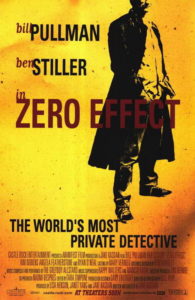 Poster child for underappreciated 1990’s cinema alongside Joe Versus the Volcano. I exited the theater on opening night convinced the film would be a huge success. I’m still waiting.
Poster child for underappreciated 1990’s cinema alongside Joe Versus the Volcano. I exited the theater on opening night convinced the film would be a huge success. I’m still waiting.
Bill Pullman gives the performance of his career as a reclusive and socially inept Sherlock Holmes who hires Ben Stiller to be his Watson/administrative assistant. The hopelessly neurotic detective fails to function outside his investigations, but a burgeoning relationship with prime suspect number one (the deft and underappreciated Kim Dickens) threatens to deconstruct his barriers between work and life.
The film wanders through genres like Holmes through opium dens of ill repute. It’s a personality-driven dramedy and thriller. Movies that defy easy categorization often fail to find their audience, and I think that’s ultimately why Zero Effect fell through the cracks. Jake Kasdan’s film constantly undermines expectation in both form and function. One might consider this on the same frequency as Grosse Pointe Blank – a film that reveals a beating human heart beneath a familiar and palatable genre-based exterior.
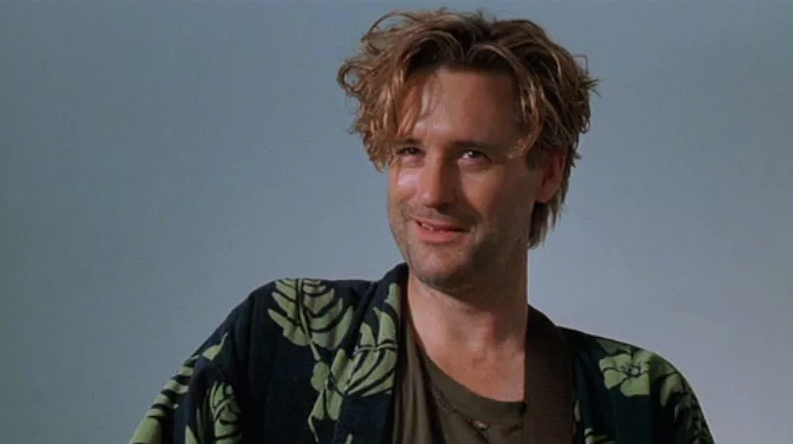
Zero Effect has been made available on DVD once again from the beautiful people at Warner Archive.
The Big Hit (Kirk Wong, 1998)
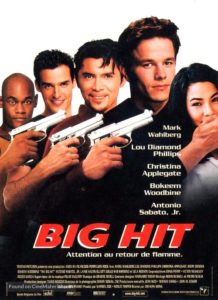 Speaking of goofy, let’s talk about the John Woo, Terence Chang, Wesley Snipes-produced The Big Hit, an action film that dares to ask the question: How much self-awareness and masturbation humor can one audience tolerate?
Speaking of goofy, let’s talk about the John Woo, Terence Chang, Wesley Snipes-produced The Big Hit, an action film that dares to ask the question: How much self-awareness and masturbation humor can one audience tolerate?
I’ve never had a good handle on this film’s popularity (or lack thereof). I know I’ve always enjoyed it precisely because it dares to be 100% obnoxious and not give a damn. Like this is just the way movies were in the 90’s. I also worry that when the asteroid hits, future civilizations will find only copies of this movie to paint a picture of life in 1998. Consciously clunky jokes, stage-y action scenes and random Elliott Gould sightings. Put-upon Mark Wahlberg’s Melvin Smiley leads dual lives with different girlfriends as a hitman and as a not-hitman. A big deal goes sour and Melvin unfairly takes the fall. This requires him to shoot a lot of guns and dodge a lot of bullets.
To best summarize why I like this film, allow me to select a snippet from Roger Ebert’s overall negative review. He says, “I guess you could laugh at this. You would have to be seriously alienated from normal human values and be nursing a deep-seated anger against movies that make you think even a little, but you could laugh.” Roger, I watch a lot of movies that make me think. I watch a lot of movies that don’t make me think. The Big Hit is one of the select few movies that make me think about how little I actually need to think.
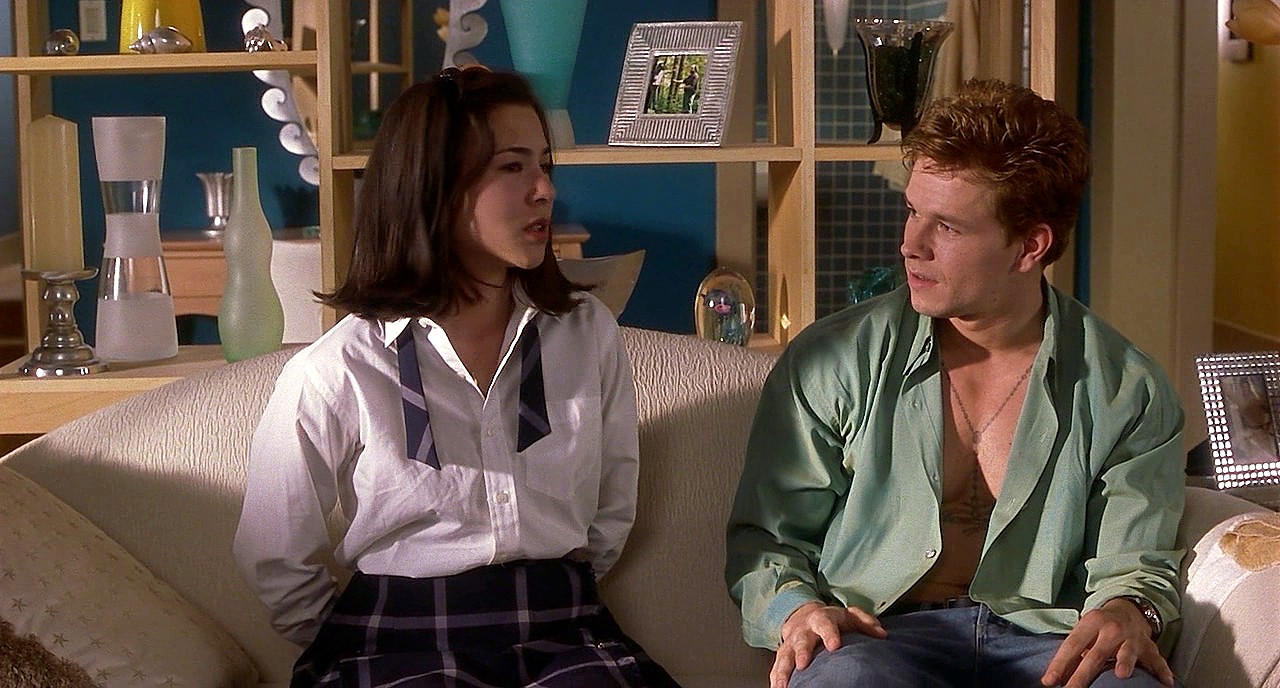
The Big Hit is available on Blu-ray. And thank goodness for that.
Belly (Hype Williams, 1998)
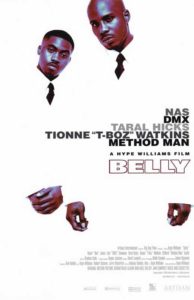 Avant-gard Blaxploitation? Hyper-extended rap video? Music video director Hype Williams’ only big screen feature weaves stunning visual imagery into a rather rote narrative about anti-hero drug dealers slipping into a grizzly criminal underworld for which they’re not appropriately prepared.
Avant-gard Blaxploitation? Hyper-extended rap video? Music video director Hype Williams’ only big screen feature weaves stunning visual imagery into a rather rote narrative about anti-hero drug dealers slipping into a grizzly criminal underworld for which they’re not appropriately prepared.
Belly’s sensational indulgence in style over substance presents itself in frame one. The film opens with crushed blacks, neon light, glowing eyes, a club scene set to Soul II Soul’s “Back to Life.” Visuals override narrative. They override everything but an emotional reaction to the image itself. We’re left with fleeting moments of serenity and bursts of violence. Often the dialogue isn’t even intelligible – either as a result of the speech patterns of Nas, DMX’s muted gravel tones, the multitude of Jamaican accents – and it doesn’t even matter. Williams trains his camera on experimental visuals coupled with an aggressive hip-hop soundtrack. More than a music video, but less than a feature film.
The intersection of ineptitude, hyper-realism and genius cool. I’ve gone back and forth on this film a couple of times. After my last viewing, I’m back to calling this a near masterpiece of pop-culture auteurism.
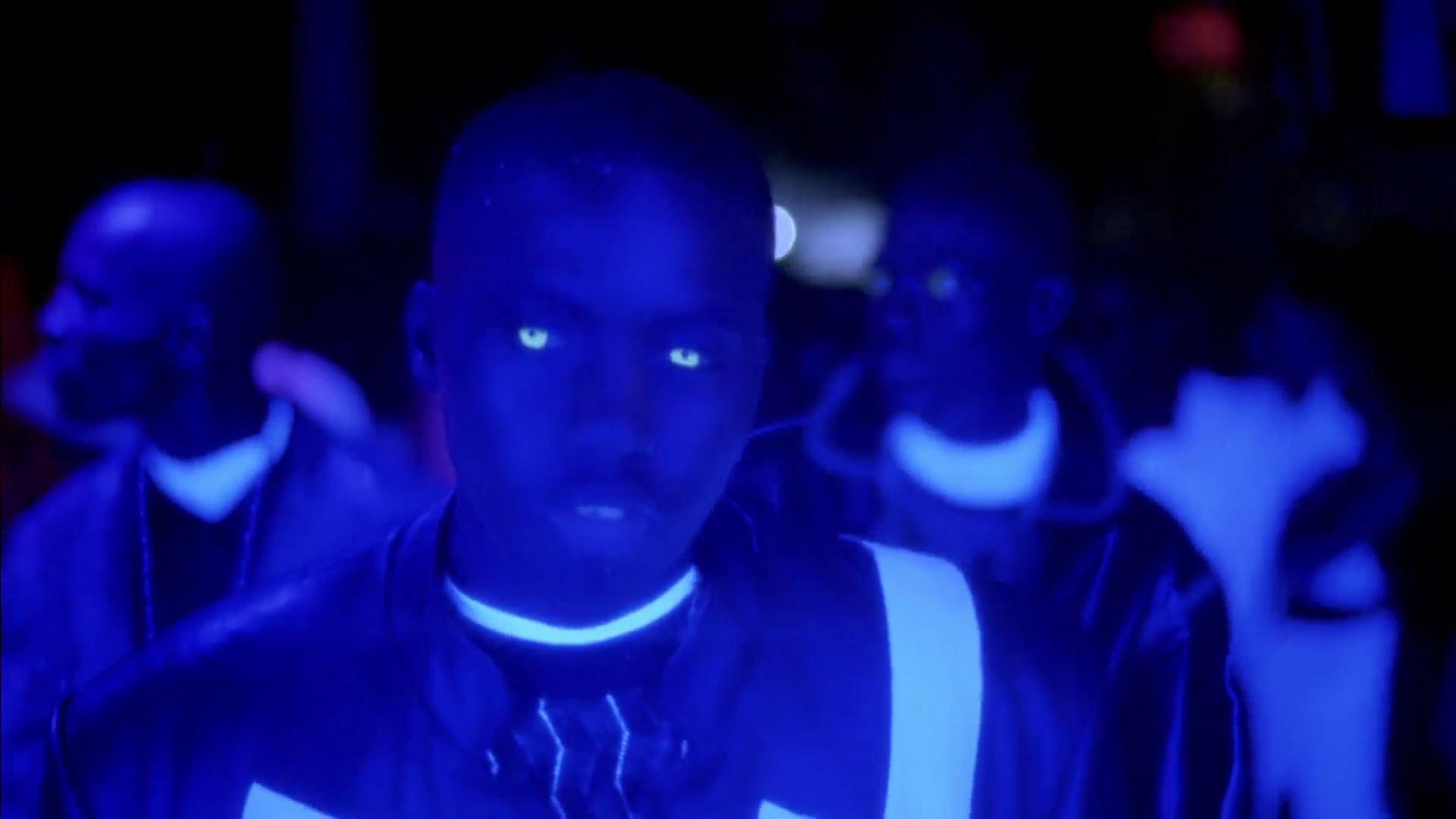
Belly is available on Blu-ray, but it could use a Criterion release to juice it’s prestige a bit.
New Rose Hotel (Abel Ferrara, 1998)
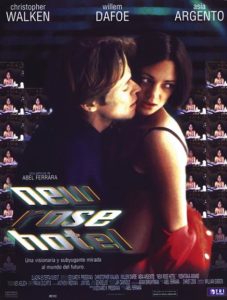 Less a narrative than an experience, a sequence of vignettes told through voyeurism, found footage, security cameras, digital sunsets, and Dutch angles. Challenging in its raw simplicity, but compelling due to the force of images. Ferrara’s ill-received but fearless film deserves a re-evaluation. In many ways, New Rose Hotel shares the same DNA as Hype Williams’ Belly in that it foregrounds the artifice of cinema to make a simplistic story more impactful.
Less a narrative than an experience, a sequence of vignettes told through voyeurism, found footage, security cameras, digital sunsets, and Dutch angles. Challenging in its raw simplicity, but compelling due to the force of images. Ferrara’s ill-received but fearless film deserves a re-evaluation. In many ways, New Rose Hotel shares the same DNA as Hype Williams’ Belly in that it foregrounds the artifice of cinema to make a simplistic story more impactful.
Willem Dafoe plays small. Christopher Walken goes broad. Both men give confident, heartbreaking performances. But their excellence is expected; it’s Asia Argento upon which this whole film hinges. She sells Ferrara’s contorted premise about a pair of long-play corporate schemesters attempting to steal a scientific genius away from his family and employer. She’s the lynchpin, the chanteuse, the bait in this transaction and she delivers her lines with naiveté and guile – the viewer never knows how much she understands about the nature of these shady dealings. Without Argento’s performance the film falls apart in a heap of pretentiousness.
Ferrara wants to convey the duplicity of the image, the ways a filmmaker can manipulate signs and symbols and thereby the audience. This reflects the potency of the William Gibson source material as well as Ferrara’s brash confidence. New Rose Hotel takes the shape of a kinetic three-person chamber drama or one-act play about the male code of honor and female objectification. It’s an enigmatic film that further reveals itself through multiple viewings.
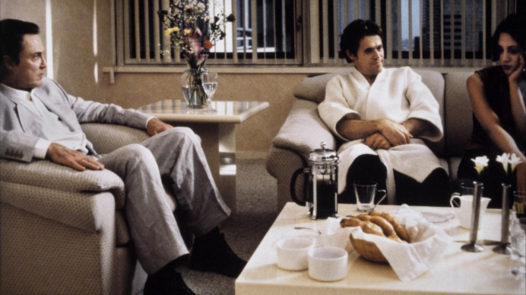
Monument Ave. (Ted Demme, 1998)
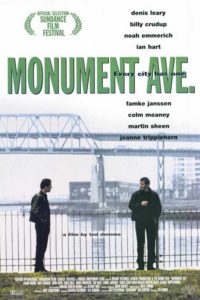 Time for a slow jam that slipped under most everyone’s radar. I only caught up with it recently when I went back to watch some 1998 films that lingered in Watchlist purgatory.
Time for a slow jam that slipped under most everyone’s radar. I only caught up with it recently when I went back to watch some 1998 films that lingered in Watchlist purgatory.
Instead of a hyperactive style or an amalgamation of genre (as has been the trend on my Underrated 98 list so far), this low-key Boston mob flick satisfies due to a surprising lack of narrative. Monument Ave. isn’t about double or triple crosses—merely the morality of inaction. Leary gives a strong performance as Bobby O’Grady, a middling member of an Irish neighborhood gang run by Jackie O’Hara (Colm Meaney) who must choose whether or not to act when Jackie kills one of Bobby’s old buddies. Denis Leary’s Hamlet. A strong supporting cast, including Famke Janssen, Billy Crudup and Marin Sheen, props up the comedian’s surprising turn.
Contrary to genre expectations, there’s no scheme. No plot gone wrong. Childhood friends grow up in a rough and tumble neighborhood and eventually become consumed by the violent elements that have always threatened to invade their lives. Ted Demme’s film reminds me of the kind of creative, character-driven dramas that dominated the 1970’s. Monument Ave. appears aimless in ambition, but resonates emotionally due to the weight of O’Grady’s guilt and ultimate release from these shackles.
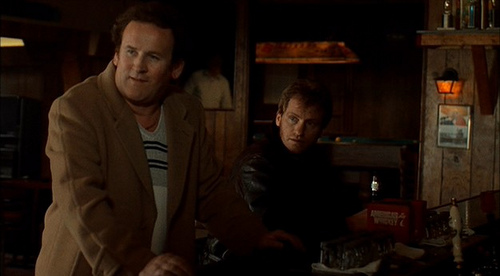
Thursday (Skip Woods, 1998)
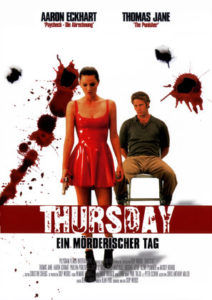 The Pulp Fictioning of the 1990’s continued through the tail end of the decade. The lasting legacy of Pulp Fiction wasn’t just brutal criminals swinging Grade-A overworked dialogue; it was also about the criminal element broaching the everyday. The “Royale with Cheese” effect
The Pulp Fictioning of the 1990’s continued through the tail end of the decade. The lasting legacy of Pulp Fiction wasn’t just brutal criminals swinging Grade-A overworked dialogue; it was also about the criminal element broaching the everyday. The “Royale with Cheese” effect
In Skip Woods’ Thursday (his only outing as director), Thomas Jane plays Casey Wells, a false everyman, newly married and living as an architect in posh suburbia – albeit with an uncertain nefarious past. When old buddy Aaron Eckhart floats into town, this uncertain past manifests in the form a trunk of heroine, a missing bag of cash and a procession of ne’er-do-wells on his doorstop. All the while, our protagonist must convince a social worker that he fosters an environment fit for adoptive child rearing.
This low-budget gem boasts standout set pieces, including a spectacular opening volley of comedy and carnage where Eckhart shoots up a convenience store over an overpriced cup of coffee. Just when you think the movie has gone sufficiently off the rails, Mickey Rourke shows up as a crooked police officer named Kasarov. The dialogue and surprising direction during the final third make this one of the better Tarantino-lites to come downthe pipe during the latter half of the decade.
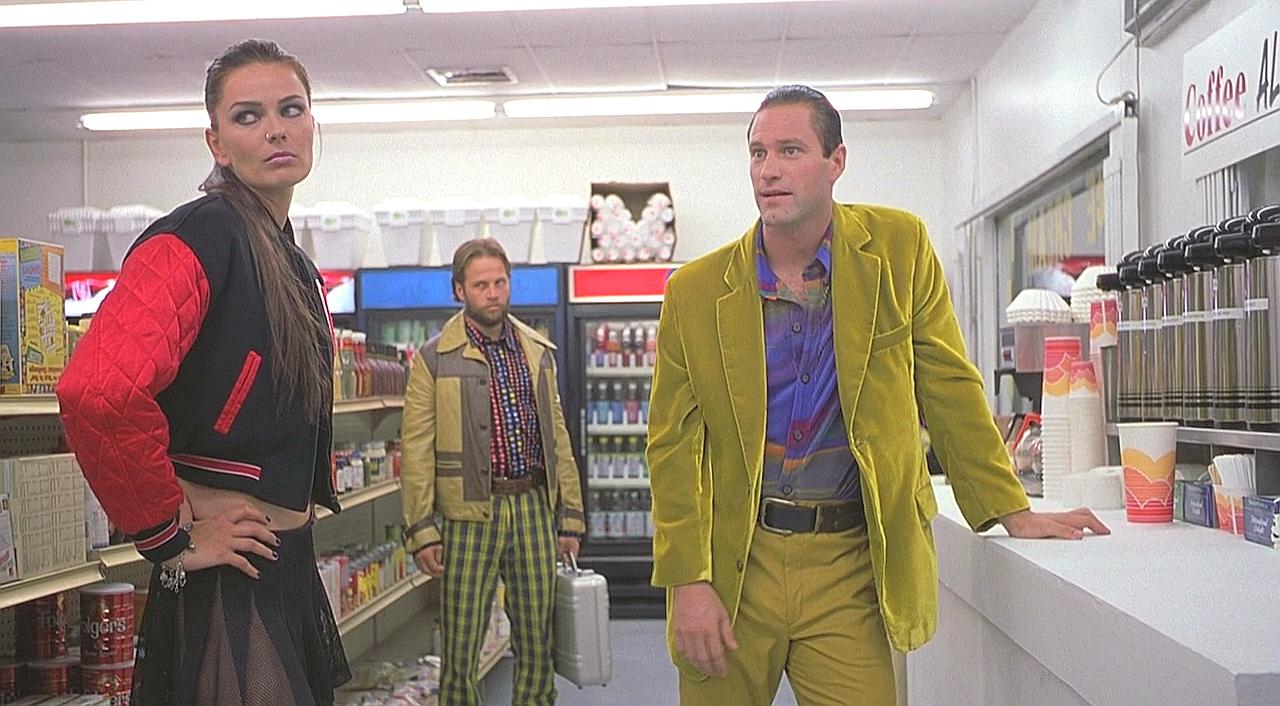
Shattered Image (Raul Ruiz, 1998)
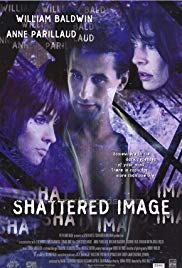 File under “movies I’d completely forgotten about but felt like a really big deal at the time.” Fatter than you’d probably imagine, this file of mine contains a whole slough of a certain kind of movie I devoured in the 1990’s – barely-released indie thrillers. Shattered Image stands out (now that a Letterboxd list of movies from 1998 has jogged my memory) as a film that people loathed upon release. Chilean director Raul Ruiz made this one final attempt at breaking into the American market. Blurbs like “the execution is bad enough to put you off movies for good…” from Edward Guthmann of the San Francisco Chronicle sent him scurrying back to Chile, never to return.
File under “movies I’d completely forgotten about but felt like a really big deal at the time.” Fatter than you’d probably imagine, this file of mine contains a whole slough of a certain kind of movie I devoured in the 1990’s – barely-released indie thrillers. Shattered Image stands out (now that a Letterboxd list of movies from 1998 has jogged my memory) as a film that people loathed upon release. Chilean director Raul Ruiz made this one final attempt at breaking into the American market. Blurbs like “the execution is bad enough to put you off movies for good…” from Edward Guthmann of the San Francisco Chronicle sent him scurrying back to Chile, never to return.
I can’t tell you with any certainty if Ruiz’s Shattered Image functions as an homage or a tongue-in-cheek parody of Hitchcock. Misdirection and confusion seem to be his primary tactics. The film gives the viewer zero footing, and Ruiz flaunts the nonexistent barrier between reality and a De Palma-esque dreamstate. Is Jessie (Anne Parillaud) a ruthless hitwoman or a paranoid schizophrenic on her Jamaican honeymoon? Does Ruiz suggest the existence of a third reality? Is this an atmospheric, obtuse art film or a mangled Hollywood production by an experimental director who found himself at odds with the American system? Does Billy Baldwin have any idea what year it is? How much dialogue can be whispered in one film?
That said, does any of it even matter when Shattered Image proves to be so wildly eccentric and impossible to decipher? Yes and no. This is about the many and varied personalities within us that inhabit the same space. I think. You know what? Forget everything I just said. Just get lost in Shattered Image and see where it takes you.
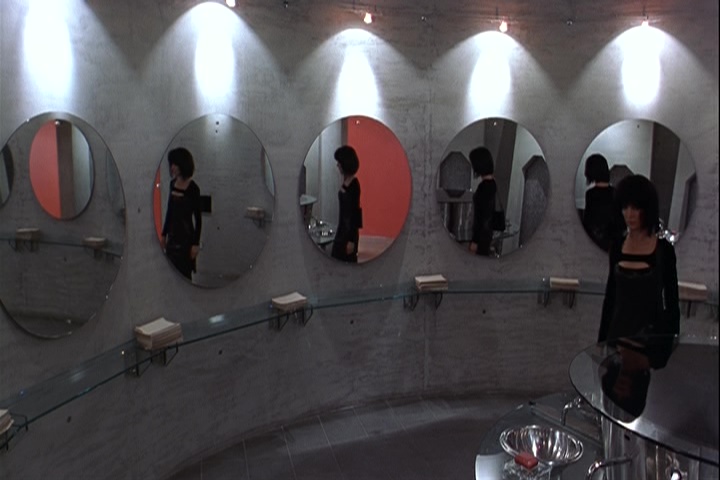

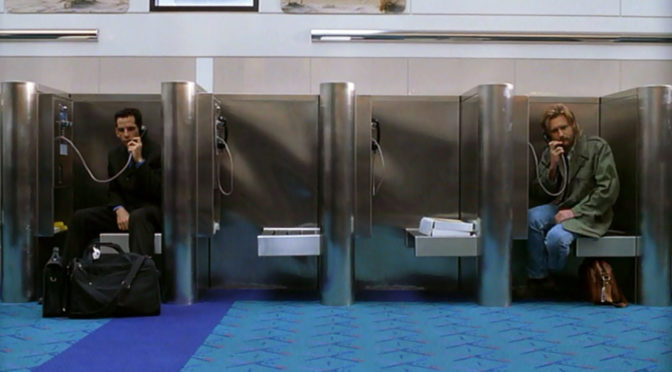
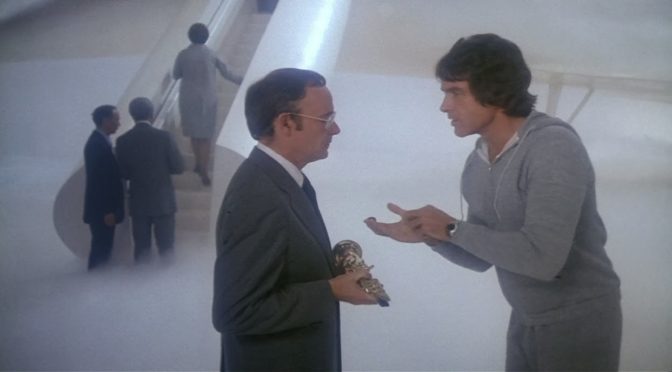


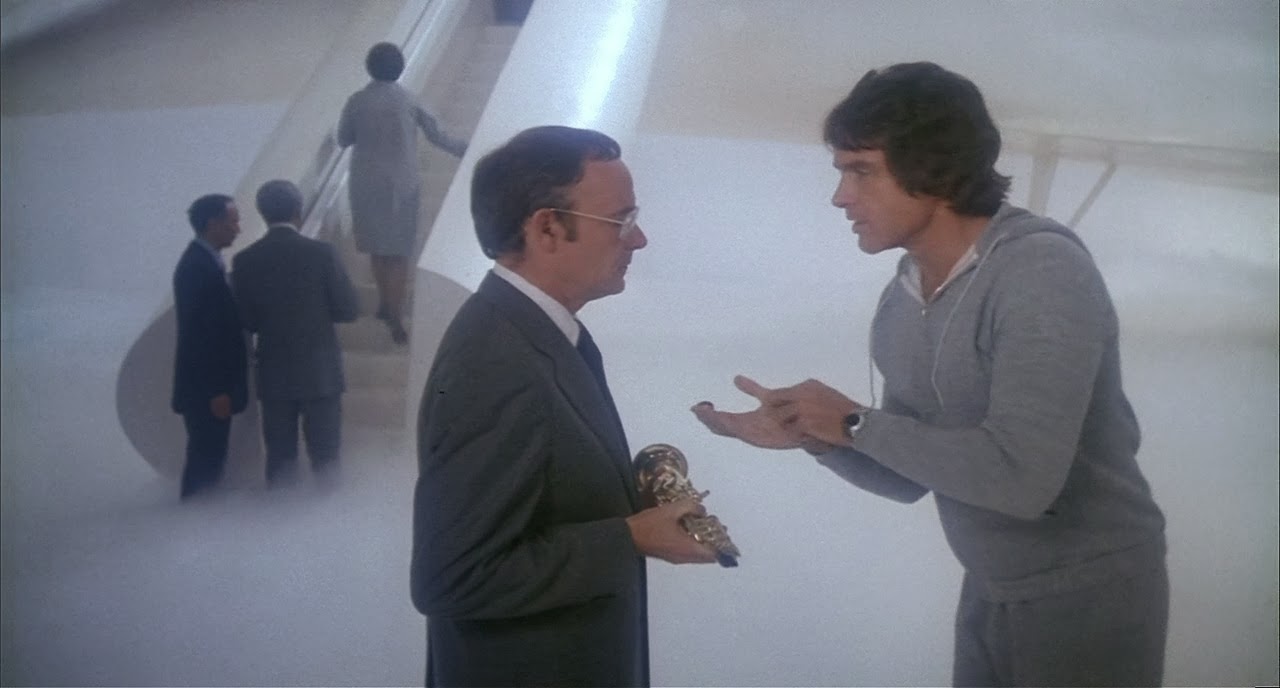
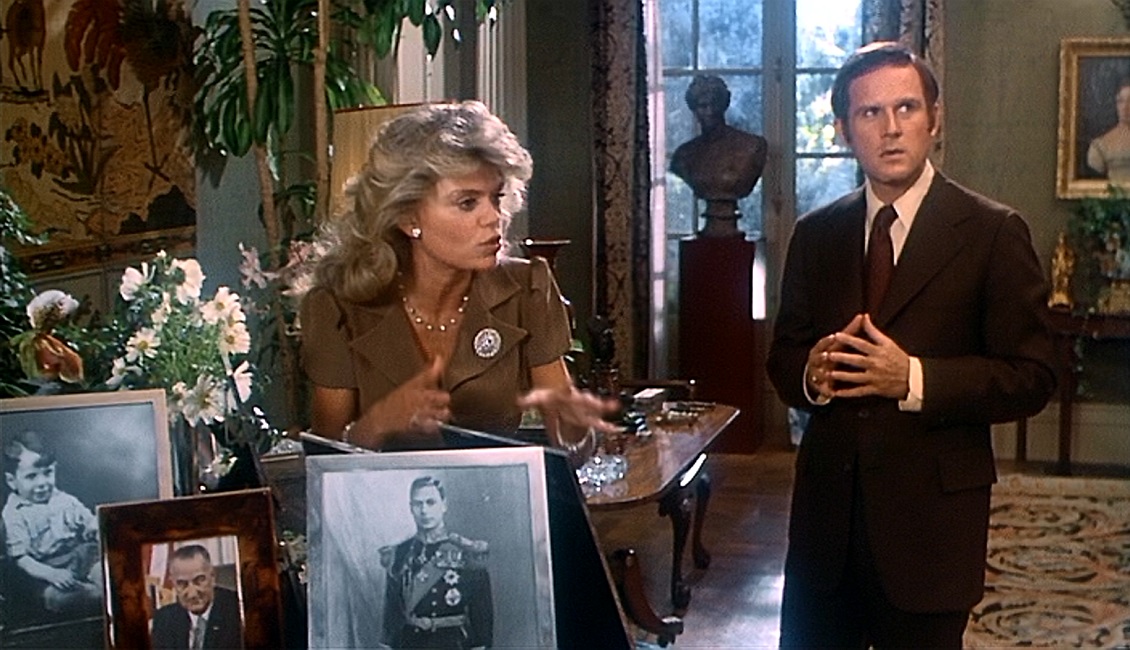

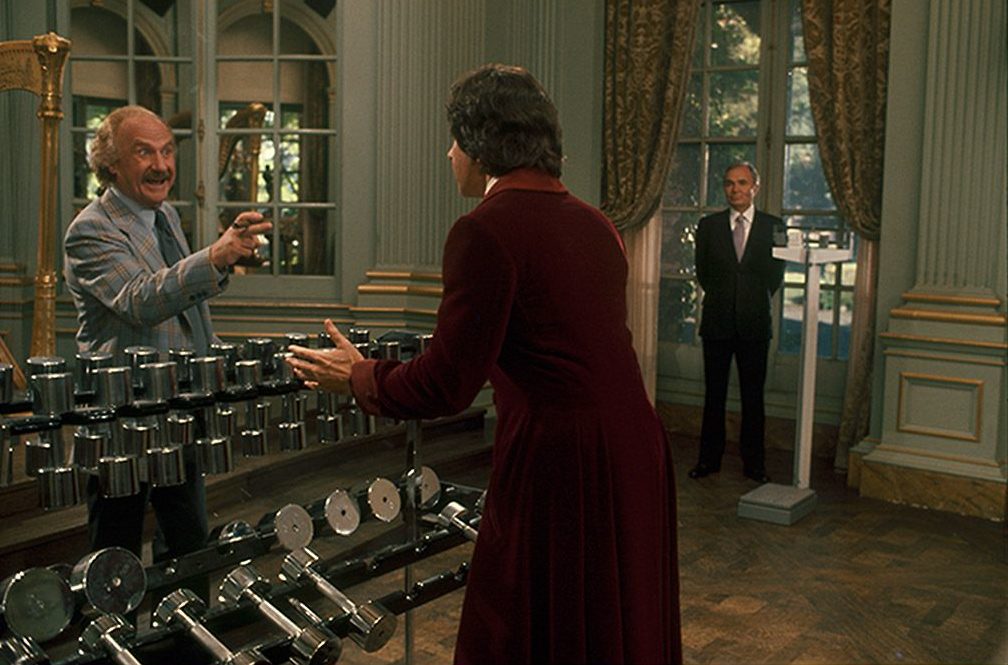
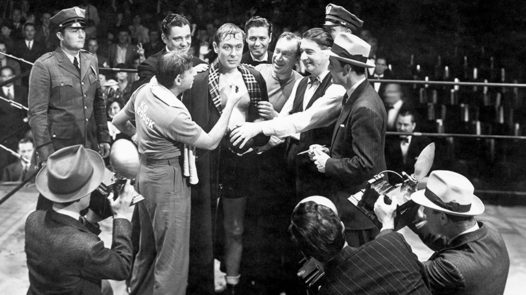
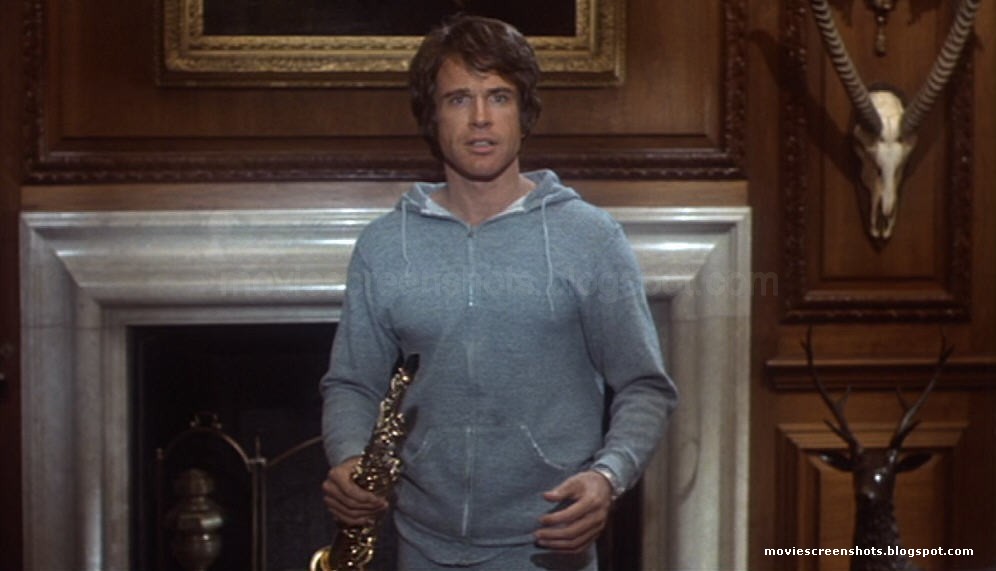

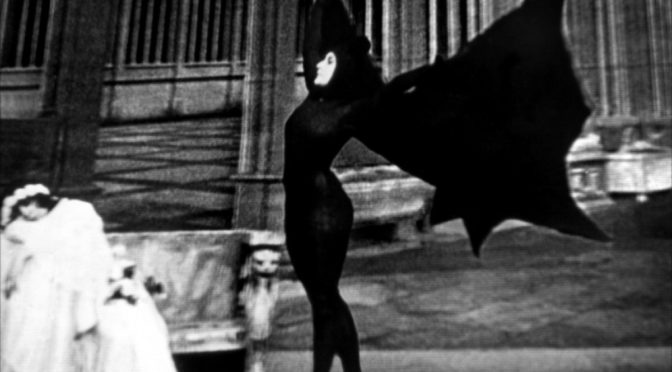
 Joe Pantoliano plays a 1960’s TV teen dance party emcee. That should at least pique your interest in this obscure gem directed by the screenwriter of The Legend of Billie Jean, Superman IV and Star Trek VI. The film remains, perhaps unjustly, Mark Rosenthal’s only directorial credit.
Joe Pantoliano plays a 1960’s TV teen dance party emcee. That should at least pique your interest in this obscure gem directed by the screenwriter of The Legend of Billie Jean, Superman IV and Star Trek VI. The film remains, perhaps unjustly, Mark Rosenthal’s only directorial credit. Clocking in at a total of 400 minutes, Louis Feuillade’s second silent serial masterpiece has run in fits and spurts throughout the month, and while I’m just wrapping up the final few episodes I’ll sneak into this June countdown.
Clocking in at a total of 400 minutes, Louis Feuillade’s second silent serial masterpiece has run in fits and spurts throughout the month, and while I’m just wrapping up the final few episodes I’ll sneak into this June countdown. Soggy, narrative-driven police procedural turns into a gripping thriller, inspires Jack Webb to make the Dragnet TV series. Two scenes set this film apart — the chase through the LA storm drains and a cringeworthy, bowel-clutching segment where Richard Basehart digs a bullet out of his side. It’s all silence, and squishy noises and Basehard grimaces. It’s visceral and unforgettable cinema.
Soggy, narrative-driven police procedural turns into a gripping thriller, inspires Jack Webb to make the Dragnet TV series. Two scenes set this film apart — the chase through the LA storm drains and a cringeworthy, bowel-clutching segment where Richard Basehart digs a bullet out of his side. It’s all silence, and squishy noises and Basehard grimaces. It’s visceral and unforgettable cinema. John Patrick Shanley’s screenwriting debut focuses on the lives of teens coming of age in the Bronx during the 1960’s. John Turturro plays an unhinged youth who was sent to prison for trying to rape Jodie Foster. Tim Robbins plays the born-again revolutionary who clubbed him with a lamp to prevent the rape.
John Patrick Shanley’s screenwriting debut focuses on the lives of teens coming of age in the Bronx during the 1960’s. John Turturro plays an unhinged youth who was sent to prison for trying to rape Jodie Foster. Tim Robbins plays the born-again revolutionary who clubbed him with a lamp to prevent the rape.